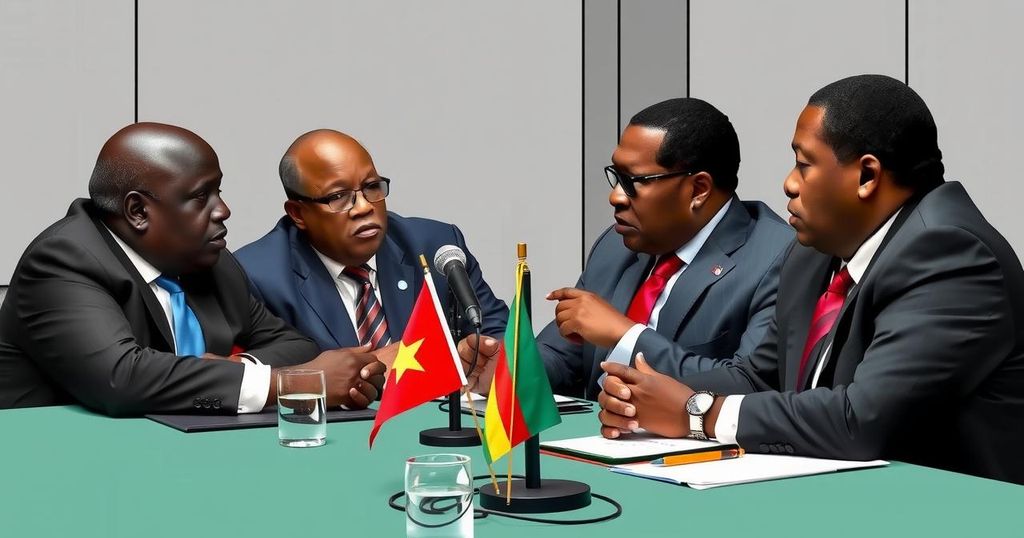Mozambique is in a political crisis following contested election results that have led to protests and over 110 deaths. South Africa is mediating discussions between government and opposition, although concerns about electoral integrity and judicial impartiality persist. Regional analysts suggest that power-sharing and transparent reviews may be potential solutions, reflecting a greater trend of voter disillusionment in Southern Africa with long-standing ruling parties.
Mozambique is experiencing a significant political crisis as the aftermath of the October 9 elections has led to widespread unrest. The election commission declared Daniel Chapo, from the ruling Mozambique Liberation Front (Frelimo), the winner, which opposition candidate Venancio Mondlane of the Optimist Party (Podemos) has contested, alleging systemic vote rigging. The situation escalated into protests resulting in over 110 deaths, prompting calls for intervention from regional partners, particularly South Africa, which has assumed a mediating role following the Southern African Development Community’s (SADC) unsuccessful summit in Zimbabwe.
In response, South African and Mozambican ministers convened in Malelane to develop a framework aimed at addressing the crisis. Analysts hold mixed feelings about the potential for success; however, there is cautious optimism that these discussions could provide a critical first step toward resolution. Rich Mashimbye from the University of Johannesburg has suggested that an impartial vote recount, possibly including oversight from external bodies like the SADC and the UN, might alleviate tensions.
Furthermore, calls for a power-sharing agreement mirror successful resolutions in prior African electoral disputes, as noted by political scientists. Nonetheless, skepticism surrounds the potential for genuine dialogue, as current perceptions of judicial impartiality in Mozambique remain low, particularly regarding the Constitutional Council’s forthcoming ruling on the election. The crisis is compounded by systemic socio-economic issues, including high unemployment and poverty, which bolster public discontent against the government.
Ultimately, the political landscape in Southern Africa reflects a broader trend of voter dissatisfaction with long-standing ruling parties, hinting at a shift in public expectations and governance styles.
The political crisis in Mozambique stems from the aftermath of the recent elections held on October 9, where the ruling party, Frelimo, faced significant allegations of electoral misconduct from the opposition. The Southern African Development Community (SADC) initially attempted mediation; however, South Africa has now taken the forefront to facilitate discussions between the contending parties. This crisis has resulted in violent protests and numerous fatalities, highlighting underlying socio-economic issues such as unemployment and poverty. The upcoming ruling by the Constitutional Council on the electoral dispute is anticipated to be pivotal in determining the country’s political trajectory and could either mitigate or exacerbate existing tensions.
In conclusion, the political crisis in Mozambique highlights the complexities of electoral disputes and the urgent need for effective mediation. With the involvement of South Africa as a mediator, there exists a potential pathway towards resolution; however, this hinges on external oversight and cooperation from key stakeholders. The broader implications of this crisis underscore a change in voter sentiment across Southern Africa, as citizens increasingly seek accountable governance from ruling parties.
Original Source: www.aa.com.tr






